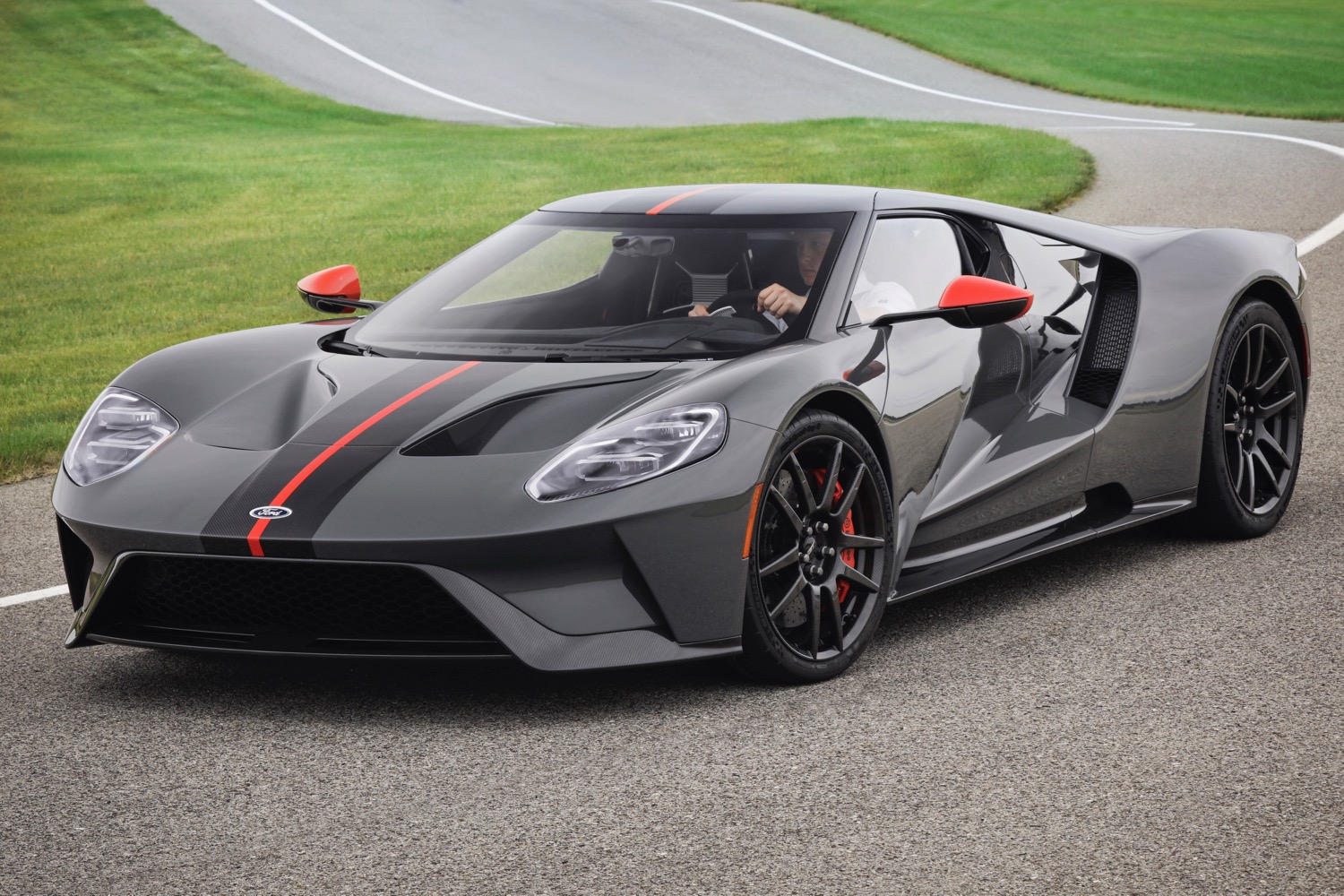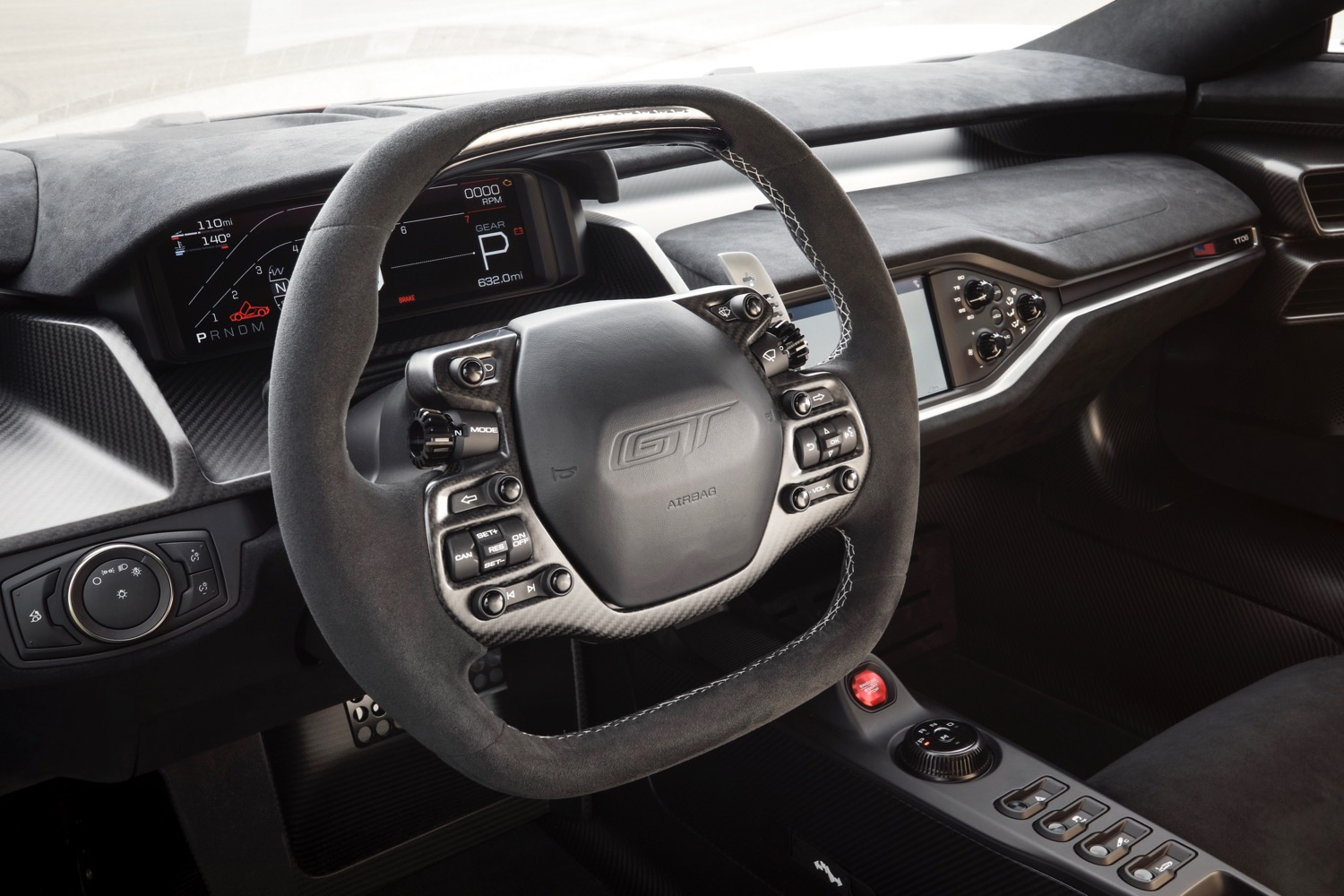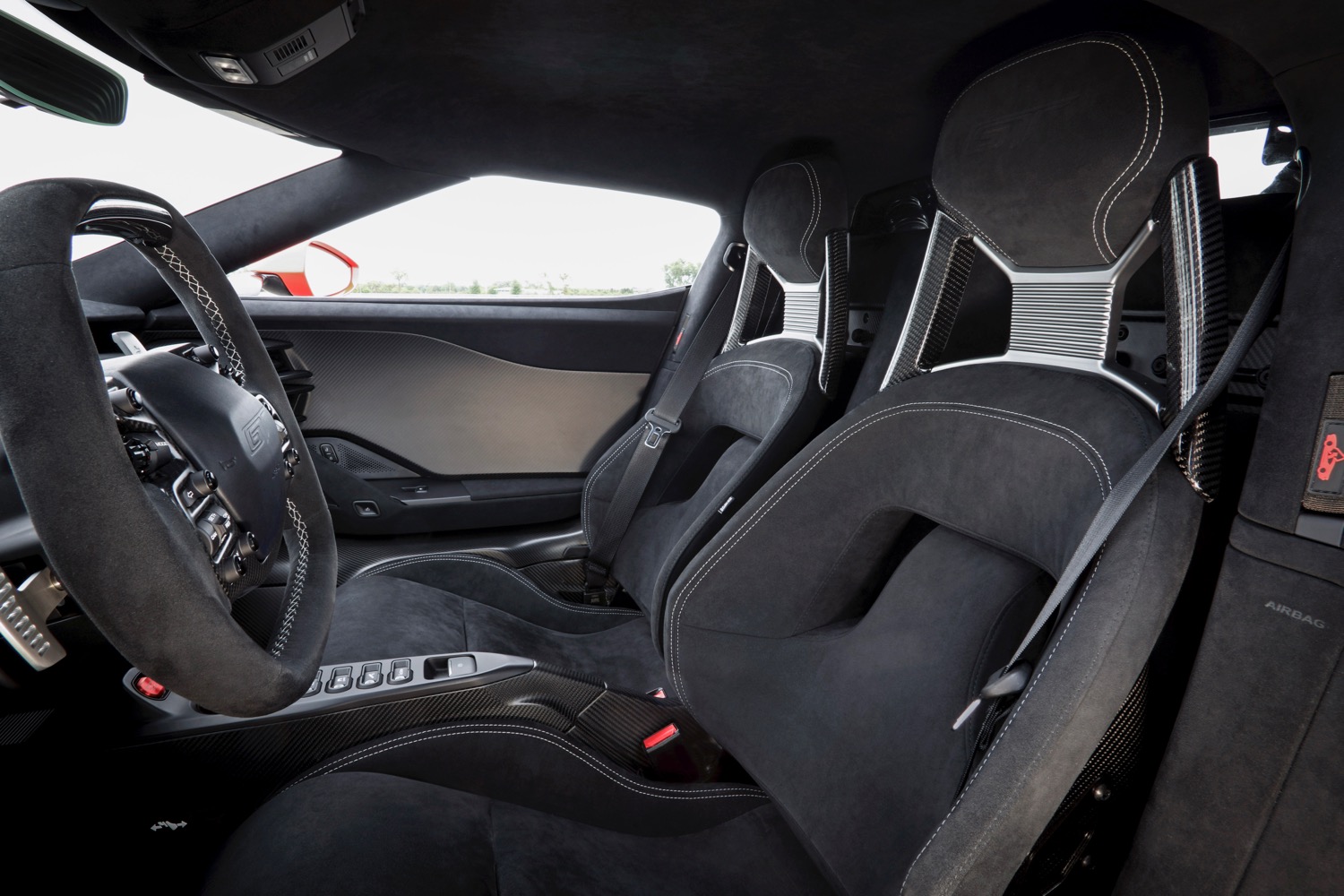It’s hard to imagine improving on the current Ford GT, but the automaker is trying with the 2019 Carbon Series model. The Carbon Series cuts weight while adding special styling and an extra dose of rarity to Ford’s race-proven supercar.
The Carbon Series treatment saves about 40 pounds compared to a regular GT, according to Ford. Those savings come from carbon fiber wheels (which are an optional extra on other GT models), titanium lug nuts, a titanium exhaust system, and a polycarbonate engine cover. Ford also removed the cupholders and the driver’s seat storage bin. Every little bit helps.
Despite the focus on shedding weight, Ford retained the air conditioning and Sync 3 infotainment system. Removing those items would have saved even more pounds, but Ford wanted to keep the Carbon Series relatively civilized.
You can spot a Ford GT Carbon Series by the exposed stripe of carbon fiber running down the center of the car. The lightweight material can also be seen on the forward pillars and low side skirts. The interior features exposed matte carbon fiber on many pieces. Ford says the Carbon Series shows off more carbon fiber than any previous GT.
Carbon Series buyers can also add an Accent Package in silver, orange, red, or blue. The selected color is used on the sideview mirror caps, brake calipers, and to frame the central carbon fiber stripe.
No mechanical changes were made, so the Carbon Series still employs a 3.5-liter twin-turbocharged EcoBoost V6 producing 647 horsepower and 550 pound-feet of torque. A seven-speed dual-clutch transmission sends that power to the rear wheels. It’s unclear how much difference the roughly 40-pound weight reduction will make in performance, but with a quoted top speed of 216 mph, it’s not like the GT needs to improve in that area.
As with all GT models, Carbon Series buyers need to apply for the privilege. The application process was put in place to ensure the limited number of GTs go to people will genuinely treasure them, and not just flip them for quick money, although Ford hasn’t been entirely successful in preventing that. Ford recently announced that it will expand GT production from 1,000 cars to 1,350. The application process reopens November 8. Expect the Carbon Series to command a premium over the standard GT, which is rumored to start at around $450,000. Ford said it can build only one Carbon Series car per week.











